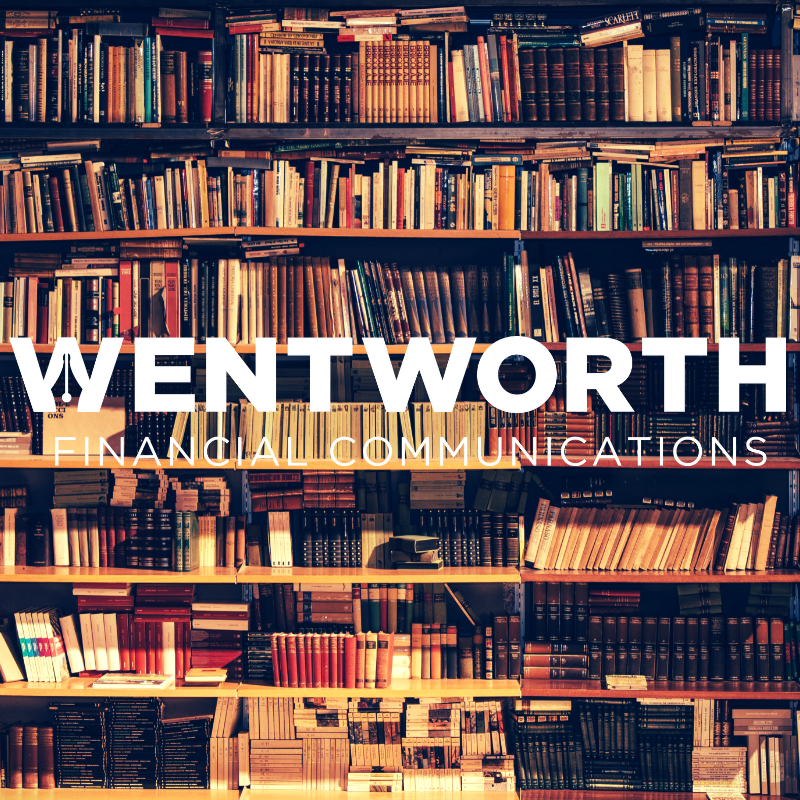I was at a family BBQ in September when my cousin asked me if I knew of any books about how to become a good financial writer.
Knowing that I was a journalist by trade and currently worked at a firm that specializes in helping financial services firms with writing, it seemed obvious to her that I would be able to supply her with a laundry list of recommendations without a single hesitation.
But I couldn’t come up with anything. “Just read; read everything,” I said.
As I’ve reflected upon the episode since, the more I firmly believe that this is prudent advice for an aspiring writer—in finance or any field. While there are “how to” books that provide tips for writing about money, investing, and other financial industry topics, you shouldn’t view any of these as a silver bullet.
Writing, like any skill, requires many hours of deliberate practice. It’s a muscle that you need to develop by writing, making mistakes, learning, then trying again. This could be typing on a computer keyboard, writing long-hand with pen and paper, or—if you’re truly nostalgic—banging on the keys of a rusty old typewriter.
In this vein, the best way to become a good writer is to write every day. If you do this, and you have someone reading and editing your work, over time you will become a stronger writer. As with any other skill, practice makes perfect.
Learn by Observing—and Doing
But unlike other skills—say, piano, where there might be books or YouTube videos that teach you how to play the instrument better—the same isn’t true for writing, especially when it comes to specialized writing in an area like financial services. Writing is a skill where you can learn as much from observing as you can from doing.
Besides books that teach proper grammar and other fundamental writing concepts—resources that you should have exhausted in high school and college—the best way to learn how to become a better writer on any topic is to read everything you can get your hands on.

To this end, if you want to become a good financial writer, then you should be reading the books, publications, magazines, and top writers in the industry—and you should spend more time reading than writing.
Now, this doesn’t mean you shouldn’t be practicing writing regularly; it just means that you should be reading about twice as much as you’re writing—at least in my opinion.
Because, through reading, you’re picking up on the pace, patterns, and practices that make for good financial writing. You’re learning the tone, style, and flow that makes these pieces compelling. And you’re learning how to do other, more subtle things, like properly attribute and source outside research, quote people directly, and other journalistic and literary practices.
What I’m Reading
For my cousin who asked me about what to read to become a good financial writer, my favorites that I recommended to her are publications like The Wall Street Journal, The Economist, The Financial Times, and Forbes; authors like Michael Lewis and Dan Pink; and columnists like Andrew Ross Sorkin and Jason Zweig, among others.
There isn’t a day that goes by that I’m not reading The Wall Street Journal, along with at least 1-2 books, some of which are directly related to business and finance, and some that are totally unrelated. (This is important, too, because part of being a good writer is having a well-rounded perspective and being able to pull together concepts and analogies from disparate fields.)
These are habits that I was told to establish by my professors during my time in journalism school; in fact, subscribing to The Wall Street Journal was a requirement in my business and economics reporting courses. And throughout my young career, whenever I’ve been asked by people coming up in the profession about things they can do to improve their writing skills, my answer is always the same: read every day, write every day; rinse, wash, repeat.
Just as a guitarist might obsessively listen to Jimmy Page, John Mayer, or Eric Clapton in an effort to master their instrument or perfect the art of the guitar solo, a good writer will do the same by obsessively reading anything and everything that is produced by the world’s best writers and publications.
If you read obsessively, sooner or later you’ll begin to replicate what you’re reading, mastering it more and more as time goes on.
For some of you, this may be disappointing. Perhaps you were hoping for a quick-fix solution or a “Writing for Dummies” resource to help you quickly become a good financial writer over the course of a few weeks.
These resources certainly exist, and they may give you a few good pointers. But they won’t replace the years and years of expertise or writing ability built up by constantly writing and obsessively reading and learning from others.
Of course, if you have a more immediate need for professional writing services and can’t afford to wait to build up that muscle through years of reading and writing, Wentworth Financial Communications is always here to help.
About the Author

Frank Kalman is the chief operations officer at Wentworth Financial Communications. Frank and the team of writers and editors at WFC help professionals across the financial services industry build their brands by creating investment-grade white papers, bylined articles, newsletters, blogs, social media posts, and other forms of content marketing.
